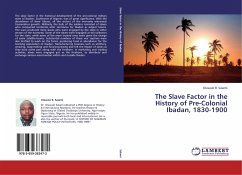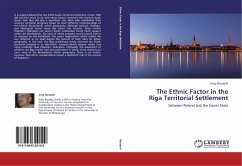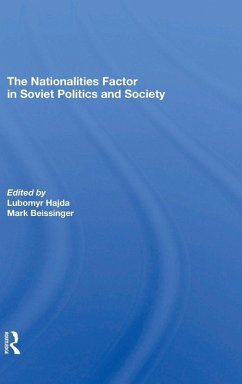
The Slave Factor in the History of Pre-Colonial Ibadan, 1830-1900
Versandkostenfrei!
Versandfertig in 6-10 Tagen
33,99 €
inkl. MwSt.

PAYBACK Punkte
17 °P sammeln!
The slave factor in the historical development of the pre-colonial military state of Ibadan, Southwest of Nigeria, was of great significance. With the abundance of slave- labour, all the sectors of the economy witnessed tremendous growth. Militarily, the bulk of the soldiers consisted of slaves who conquered territories after territories for Ibadan as subject towns. The wars produced more slaves who were engaged by the state in other sectors of the economy. Some of the slaves were engaged as toll collectors for the state, while some of the more trusted ones were given the charge of some satell...
The slave factor in the historical development of the pre-colonial military state of Ibadan, Southwest of Nigeria, was of great significance. With the abundance of slave- labour, all the sectors of the economy witnessed tremendous growth. Militarily, the bulk of the soldiers consisted of slaves who conquered territories after territories for Ibadan as subject towns. The wars produced more slaves who were engaged by the state in other sectors of the economy. Some of the slaves were engaged as toll collectors for the state, while some of the more trusted ones were given the charge of some satellite-towns. Substantial numbers of these war captives were also drafted to work on the farms, producing food in abundance for the teeming population of Ibadan. Manufacturing business such as smithery, weaving, soap-making and food-processing also felt the impact of slaves as they took active part along with the freeborn. In marketing and trading activities, slaves were engaged just as the freeborn, to distribute and exchange various merchandise within and outside Ibadan.












